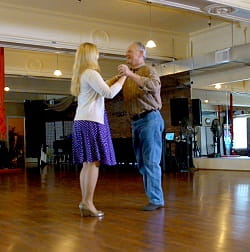The Challenge: Atrial Fibrillation
Tom Predis, a construction project manager and father of seven, has always been an active guy with plenty of energy. A native of Pittsburgh’s Bloomfield community, Tom and his wife own a small farm in Conneautville, Pa., where chores and regular exercise keep him in good shape.
Though Tom had heart problems in the past, he did not realize that the fatigue and heart palpitations he sometimes felt were symptoms of a common heart rhythm disorder called atrial fibrillation, or AFib.
AFib happens when the heart’s electrical system sends out irregular signals that cause the top chambers, or atria, to quiver instead of beating normally. AFib causes poor blood flow, and can make it easier for blood to pool and clot, which increases the risk of stroke.
The Path to UPMC's Heart and Vascular Institute
During a routine test for an unrelated surgery, Tom learned he had AFib. He asked his sister, a manager in the electrophysiology clinic at UPMC Shadyside, who to see for treatment. She recommended Samir Saba, MD, director of cardiac electrophysiology at the UPMC Heart and Vascular Institute.
At Tom’s first visit, Dr. Saba suggested cardioversion, a noninvasive procedure that uses electrical shock to restore the heart’s normal rhythm.
Dr. Saba explained that some patients respond very well to cardioversion, but that others need more extensive treatment to resolve their AFib. This was true for Tom; while the cardioversion worked for a few weeks, his fatigue and shortness of breath returned.
The Solution: Catheter-based Ablation
In December 2014, Dr. Saba recommended that Tom undergo catheter-based ablation, a minimally invasive procedure that uses heat or cold to safely destroy small amounts of heart tissue that cause AFib.
With a special heart mapping technique, Dr. Saba pinpointed the areas in Tom’s heart that caused his AFib and used both heat and cold ablation to restore normal rhythm.
“Dr. Saba is great at explaining things, and I had every confidence in him,” Tom says. “I got phenomenal care during my hospital stay. It was like being in a five-star hotel.”
These days, Tom feels great. He travels to Pittsburgh a few days a week for business and to take care of another important beat: the rhythm of the music he and his daughter Erin — a pediatric doctor at Children’s Hospital of Pittsburgh of UPMC — will dance to at her upcoming wedding.
Tom's treatment and results may not be representative of similar cases.
Read more Heart Rhythm Disorders patient stories
Learn More About Atrial Fibrillation
UPMC Heart and Vascular Institute:
From our Health Library at UPMC.com:
















